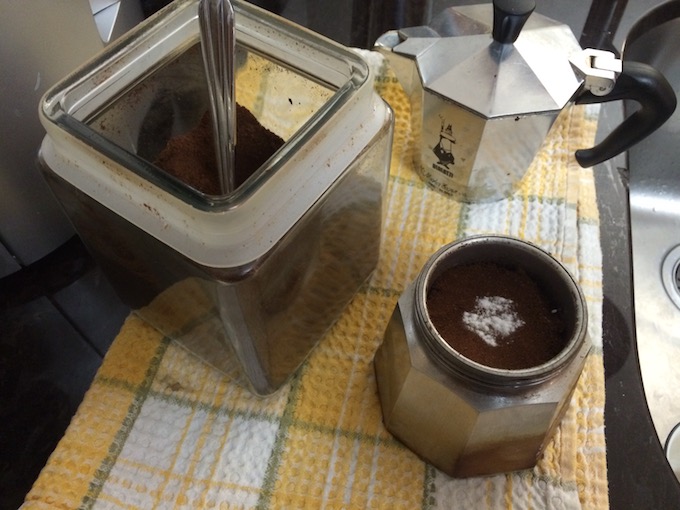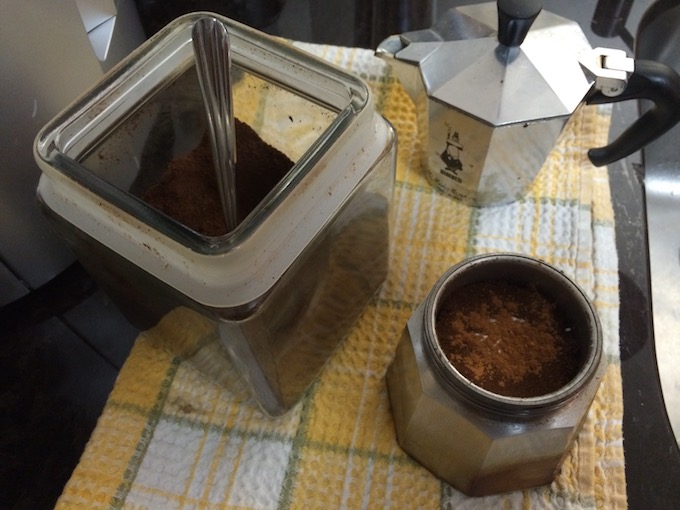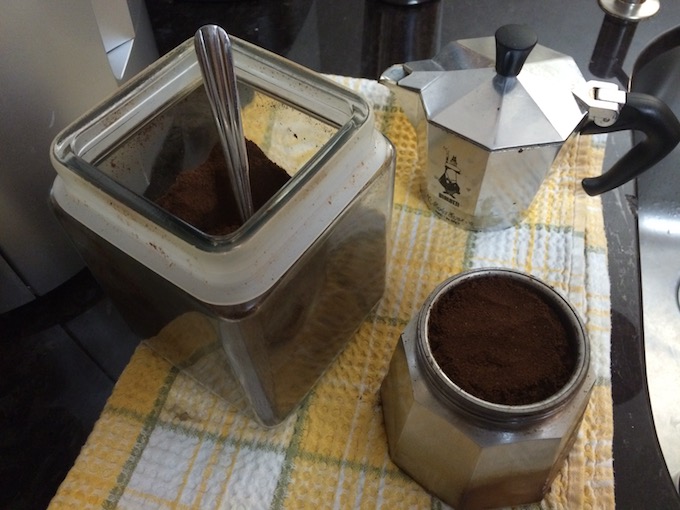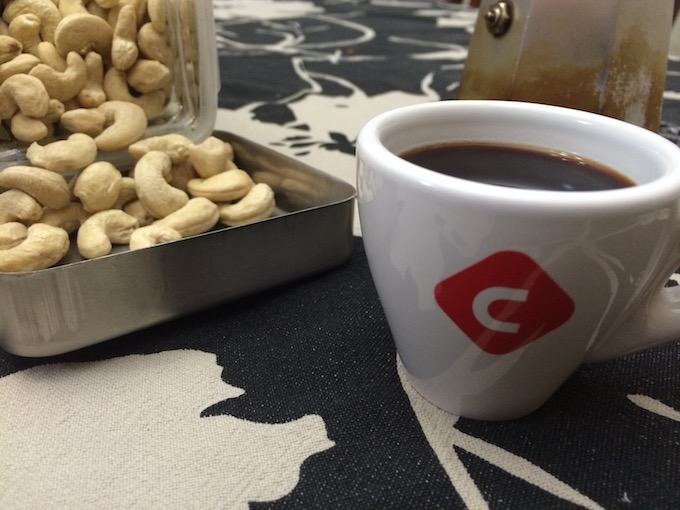Coffee offers a long list of benefits. It’s good for the heart and liver, enhances cognitive and athletic performance, lowers depression, reduces the risk of type II diabetes and certain cancers, protects against Alzheimer’s disease and dementia, may extend lifespan—and more. But despite all those perks, coffee can cause digestive issues in some people due to its acidity.
Fortunately, there’s a simple way to reduce the acidity of your coffee using two common pantry staples: baking soda and cinnamon. Here’s how:
Step 1: Fill the coffee grounds halfway and add a small amount of aluminum-free baking soda (like this one).

Step 2: Sprinkle in some organic cinnamon (like this one).

Step 3: Fill the grounds the rest of the way.

Step 4: Brew and enjoy!

If the acidity of coffee upsets your stomach, you’re not alone. Coffee contains a significant amount of chlorogenic acid. According to a 2006 study, regular exposure to this compound can contribute to gastritis—chronic irritation of the stomach lining.
Even if you’re not sensitive to chlorogenic acid, coffee is still known to stimulate contractions of the stomach and intestinal tract, as well as bile secretion. On an empty stomach, that freshly secreted (and highly acidic) bile can cause mayhem! You can reduce the impact by drinking coffee with a solid meal—or by creating a meal with your coffee as I discussed yesterday.
Also, if you typically add milk and sugar to your morning brew, consider cutting them out. Milk can increase overall acidity in the body and may hinder the absorption of beneficial nutrients found in coffee. Sugar is pro-inflammatory and tends to worsen any existing issues related to chronic inflammation or pain.
Bottom Line
To make your coffee easier on the stomach, try adding baking soda and cinnamon to the grounds, drink it with a meal, and skip the milk and sugar.

Have Your “Meatza” and Eat It Too!
By Mary Catanzaro Let’s be honest—most of us enjoy a good slice of pizza every now and then. But what

Meat: A Friend, Not a Foe
A new meta-analysis confirms what I’ve been saying for years: minimally processed beef has minimal to no impact on most

Sushi Lovers Beware: How Your Favorite Dish Affects Blood Sugar
Sushi seems like a healthy choice, but does it really keep your blood sugar in check? Let’s take a closer
follow
Error: No feed with the ID 2 found.
Please go to the Instagram Feed settings page to create a feed.
